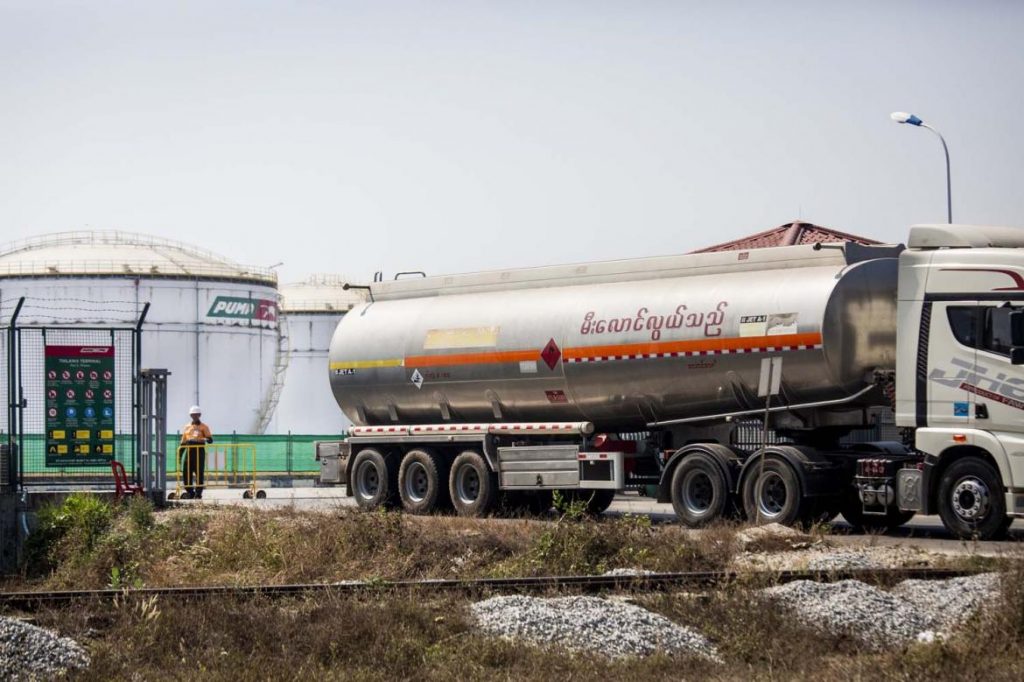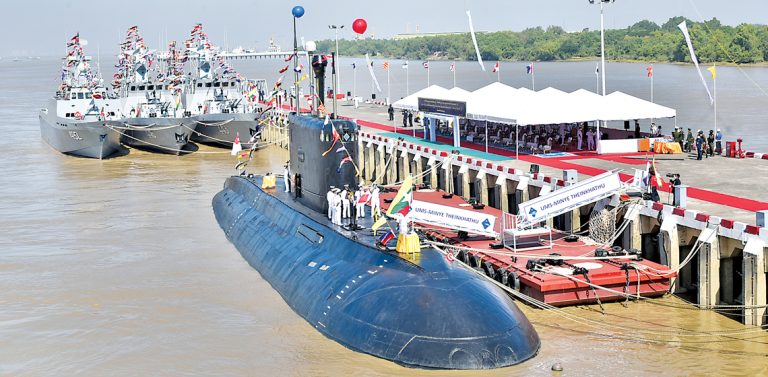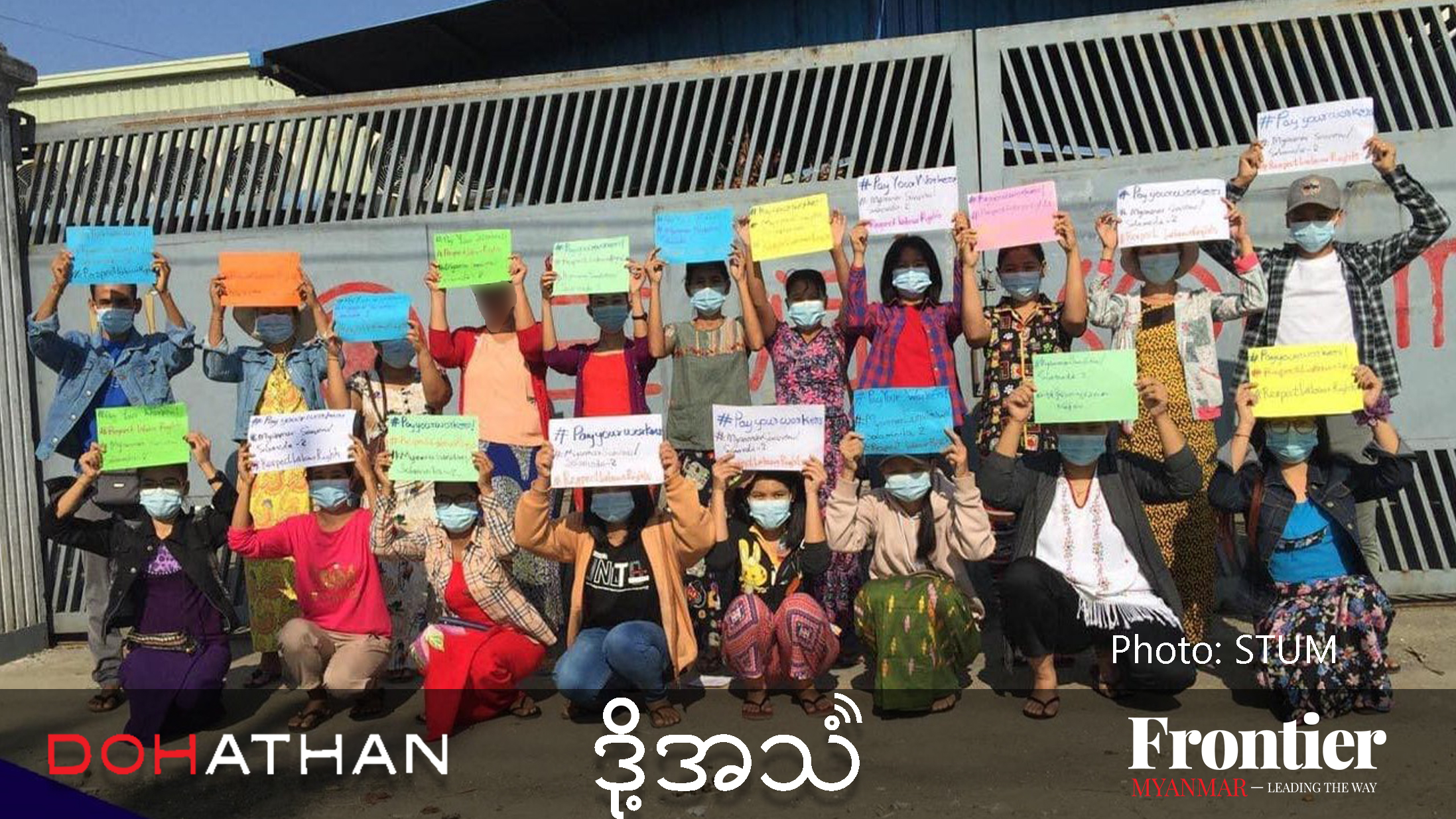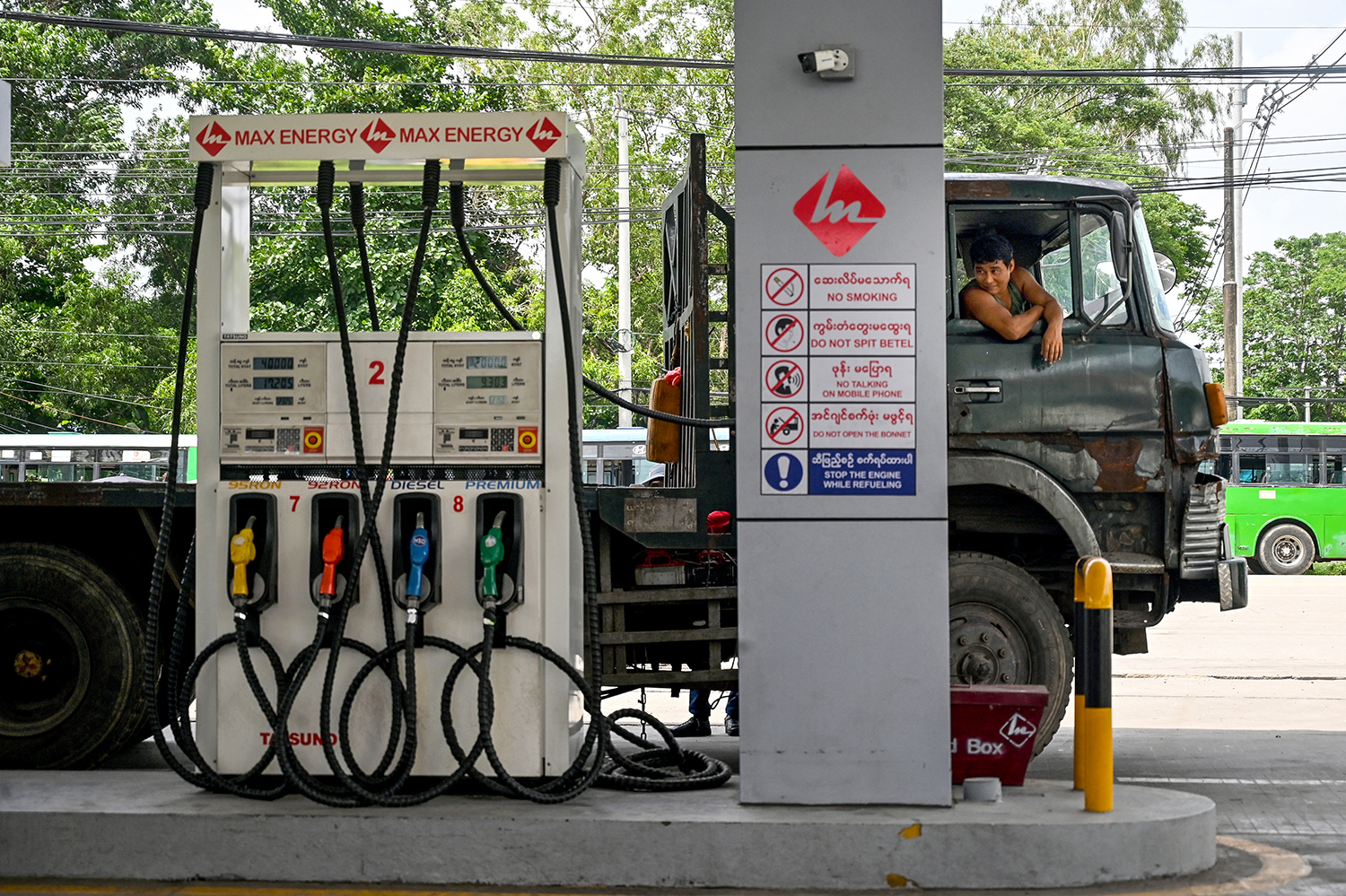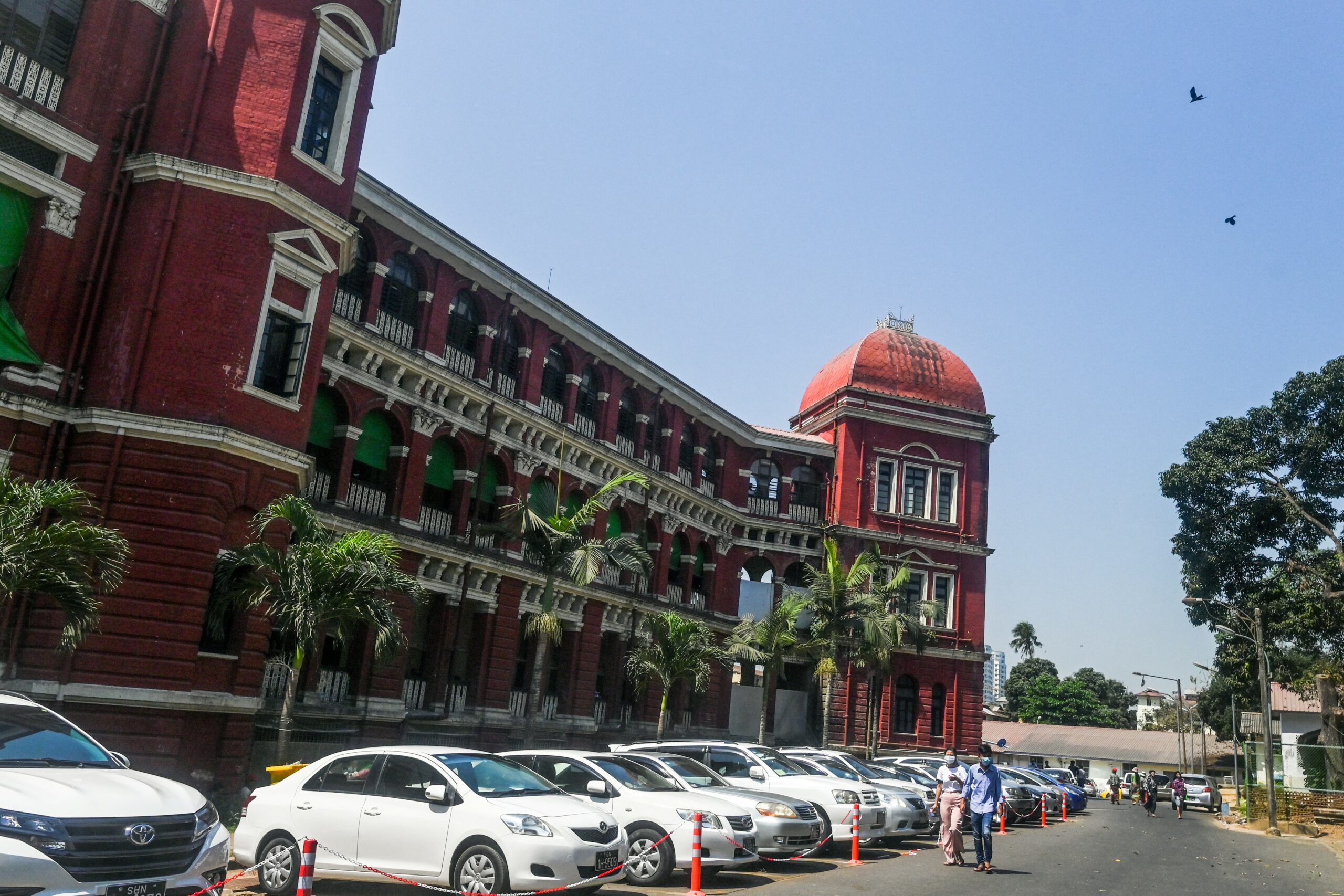A highly profitable but controversial aviation fuel joint venture has been operating without land lease agreements for four years, drawing scrutiny from lawmakers and the Auditor General’s Office.
By KYAW YE LYNN and THOMAS KEAN | FRONTIER
It seemed like the perfect business: a monopoly on the sale of aviation fuel. And in some ways National Energy Puma Aviation Services has been a profitable enterprise, generating tens of millions of dollars in just a few years – thanks largely to a lack of competition, which has enabled it to sell jet fuel at a steep price by regional standards.
But it appears things haven’t gone quite as planned for Puma Energy, the foreign partner in NEPAS, a joint venture with state-owned Myanma Petroleum Products Enterprise.
Frontier can reveal that, more than four years after it was established, the joint venture is using land at airports around the country despite having no land lease agreements. Due to the lack of agreements, the tens of millions of dollars of profits that the joint venture has accumulated are yet to distributed, and MPPE is facing potentially large stamp duty fines once the leases are eventually signed.
These issues have not gone unnoticed, with the Union Auditor General’s Office and lawmakers in the Pyidaungsu Hluttaw, Myanmar’s national parliament, both investigating NEPAS. The way forward for the partnership is unclear, with some even calling for the government to review the terms of the joint venture.
4e0a0116.jpg
Support more independent journalism like this. Sign up to be a Frontier member.
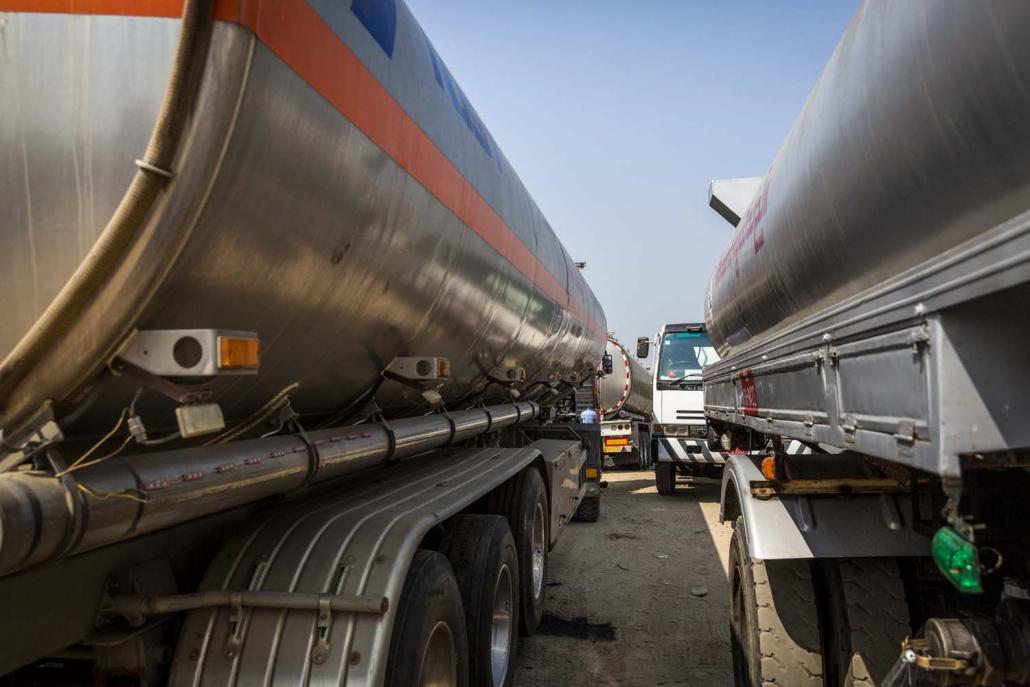
Fuel tankers line up outside fuel import terminals at Thilawa in Yangon Region. (Hkun Lat | Frontier)
A golden opportunity
For decades, MPPE ran a monopoly on jet fuel in Myanmar, delivering a sub-standard product at a premium price to the private sector.
The U Thein Sein government’s political and economic reforms starting in 2011 sparked huge growth in aviation traffic, from foreign VIPs to planeloads of tourists. Dozens of foreign airlines began calling at Yangon and Mandalay airports, and the number of domestic carriers also grew sharply, to a peak of 10.
Decades of underinvestment meant MPPE was ill-equipped to handle these new visitors and in June 2013 the Ministry of Energy announced a tender to find a partner for the state enterprise. The tender reportedly attracted interest from more than 20 companies, with Singapore-based Puma Energy selected as the winner in December 2014, edging out Thailand’s state-owned PTT.
The following October, Puma and MPPE signed a joint venture agreement for the importation, storage and distribution of aviation fuel, and were issued a temporary Myanmar Investment Commission permit.
State media reported at the time that Puma had won by offering a US$20 million signing bonus and agreeing to invest an additional $25 million in the joint venture in return for a 49 percent stake. MPPE, which would invest $26 million, would hold 51pc. The following March, four days before the outgoing Thein Sein government handed power to the National League for Democracy administration, the MIC issued a full permit.
The new business took over MPPE’s existing monopoly and used Puma’s cash injection to upgrade or replace the entire supply chain, from the terminal where the fuel comes into the country to the tanker that pumps it into the aircraft, as well as upgrade the skills of the workforce.
In 2017, Puma Energy’s then-country manager Mr David Holden told Frontier that “the nation’s fuel supply was hanging by a thread” when his company arrived.
“As in many industries, the 30 to 40 years of global isolation also affected the ability to deliver jet fuel to international standards,” he said. “You’re dealing with old tanks, small tanks, old pipelines … we’re talking about equipment from the ’50s and ’60s … People were doing an okay job, but it wasn’t a job that would have been acceptable if you want to become part of the international aviation community.”
After the upgrade, NEPAS began supplying fuel to more than 10 airports across Myanmar. While safety standards and the quality of aviation fuel undeniably improved, the price remained high – between 25 and 50 percent higher than Singapore or Thailand. As a result, foreign airlines avoided refueling in Myanmar and domestic airlines went out of business at least in part due to high fuel prices.
The monopoly has been widely criticised, including by the Department of Civil Aviation, and in April 2019 Myanmar Investment Commission granted an investment permit to Golden Myanmar Airlines to operate an aviation fuel business in competition to NEPAS. Another local company, Myat Myittar Mon – a major player in the import, distribution and sale of petrol and diesel – has said it too wants to enter the sector, while several sources have told Frontier that Yangon Aerodrome, the subsidiary of conglomerate Asia World that operates Yangon International Airport, was also preparing to operate an aviation fuel service at YIA.
“We want to have two or more fuelling services at each airport – it will boost competition and reduce fuel prices,” DCA spokesperson U Ye Htut Aung told Frontier last year.
So far, though, NEPAS remains the only game in town.
nswks-7.jpg
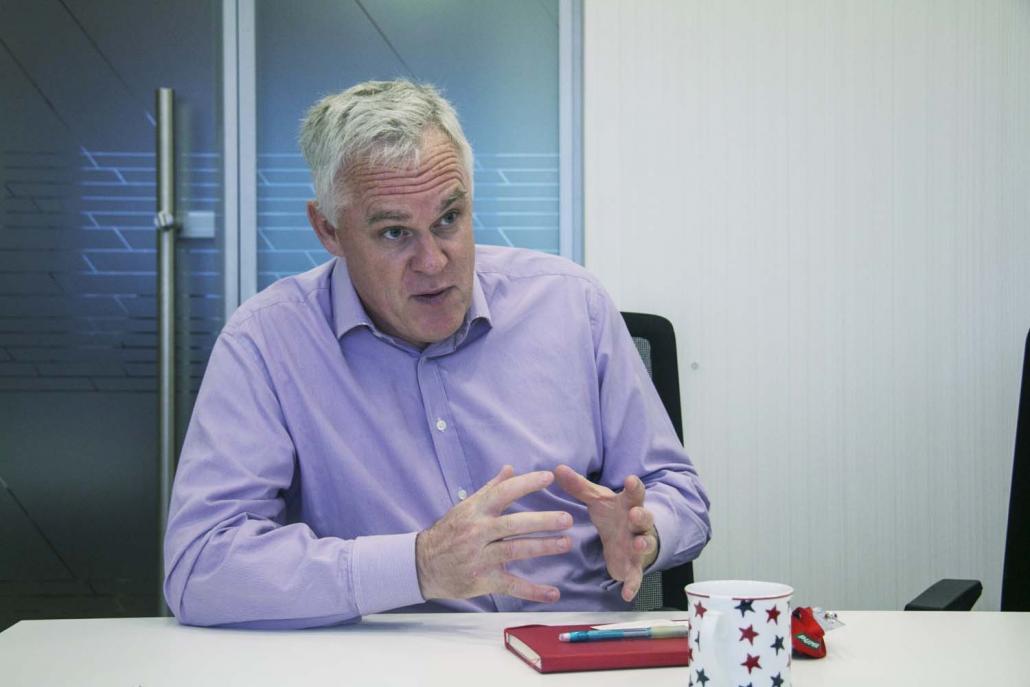
Former Puma Energy country manager David Holden speaks to Frontier in 2017. (Nyein Su Wai Kyaw Soe | Frontier)
Your land is our land
“When you fly out from Yangon airport,” Holden told Frontier in 2017, “you’re flying on our fuel. If you look down close at the airport you’ll see the tank farm, which has got Puma Energy written on the side, which is the upgraded depot at Mingaladon.”
While the tank farm might have Puma’s name on it, the land beneath it certainly doesn’t.
This was revealed in parliament last month when the Pyidaungsu Hluttaw Public Accounts Committee cited a Union Auditor General’s Office report for 2016-17 that found MPPE’s $26 million contribution to the joint venture was “in kind”: it mostly consisted of securing the rights to two warehouses at YIA as well as land-use rights at other airports around the country. Although NEPAS is using the land that MPPE promised, it is doing so without any land use agreements and is not paying any rent, the committee said.
After the committee presented its findings on the audit report last month, lawmakers in the Pyidaungsu Hluttaw questioned how MPPE could promise land-use rights at all airports for NEPAS when neither it nor the Ministry of Electricity and Energy owned the land.
“It is strange to learn that the deal was not done systematically. How did MPPE calculate the value of these properties if they were not theirs? And how did Puma Energy agree to such a vague plan?” U Win Htut (Pyapon, NLD), who chairs the Pyithu Hluttaw’s Transportation, Communication and Construction Committee, told Frontier by phone on January 31.
Win Htut said that one of the two warehouses at YIA that constituted MPPE’s in-kind investment is on land owned by the Ministry of Defence. It refused to give a long-term lease for the land, citing security concerns related to Mingaladon Air Base HQ. The other was under civilian control but had been leased in 2015 by the DCA to Yangon Aerodrome (YACL), a subsidiary of Asia World Group, under an initial 30-year agreement with the possibility of two 10-year extensions.
Win Htut said that MPPE had previously been able to lease the land at Yangon airport from the department at below-market rates, but had apparently not been able to agree terms with the private operator.
According to the committee, the audit report said that because of MPPE’s inability to secure the land-use rights, Puma had not yet invested the final $10 million of its $25 million obligation under the joint venture contract. Records from the Directorate of Investment and Company Administration show the company has $40.816 million in share capital, with MPPE holding 51pc. Holden, the former country manager, told Frontier in 2017 his company had actually invested $75 million in the partnership. (Puma Energy declined to comment for this article.)
When the Ministry of Energy (as it was then called) decided to conduct the aviation fuel tender, it appointed legal advisory firm VDB Loi to run the process. Senior partner Mr Edwin Vanderbruggen said that the request for bids had stated the JV would have land use rights and the problem only emerged after Puma was selected.
“There was huge time pressure and not a lot of data,” he said. “Along the way, you come across things that nobody really knew.
“We couldn’t find any documentation between the ministries so we couldn’t establish whether MPPE had obtained long term land rights or whether it was just an approval to use the site which could be revoked at any point.
“We took the view that it was clear that long term land rights had been agreed because MPPE had installations on it. These installations cannot be removed in a day, it’s not like parking a car on it.”
Vanderbruggen said it was only when the partners tried to secure an MIC permit that it became clear there was a conflict with YACL over land use at YIA.
“This was a complicated, legacy issue … [and] the parties found a commercial accommodation between them on how to manage the uncertainty from this land issue. That’s between MPPE and Puma … I was acting for the government, not for Puma, so it wasn’t my job to make sure Puma got the land rights.”
thuya-8.jpg
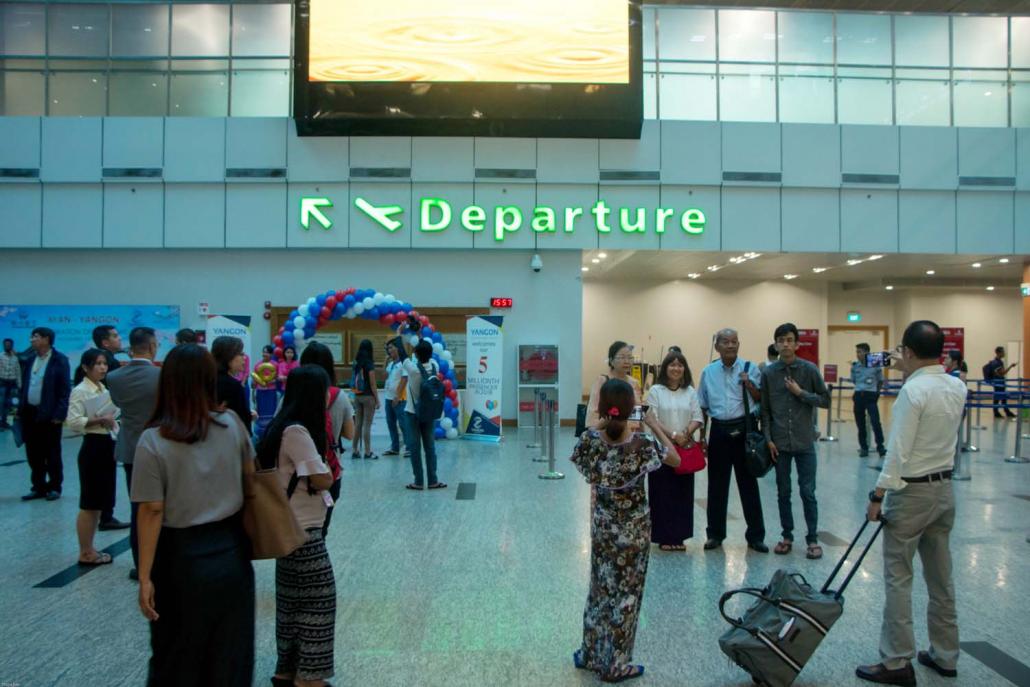
The Department of Civil Aviation insists NEPAS must negotiate a land lease agreement for its facilities at Yangon International Airport with Yangon Aerodrome, which has run the airport since 2015. (Thuya Zaw | Frontier)
Competition from Asia World?
An official from MPPE who sits on the five-member board of directors at NEPAS said the delay was because the enterprise was trying to lease land from the DCA rather than Yangon Aerodrome.
“YACL will only be in charge of airport operations for 30 years, while we [NEPAS] will last forever, so leasing land from YACL is not appropriate,” said the official, who spoke on condition of anonymity as he is not a spokesperson for MPPE.
“The DCA is the original land owner so we should just negotiate with them, but the problem is DCA doesn’t accept it … they ignore our request,” he said.
The MPPE official accused the DCA of favouring YACL, which he said was mostly staffed by retired department officials.
“YACL also plans to run a jet fuel business at YIA, so they want to stop leasing land to us,” the MPPE official said. “That’s the real reason why we are not able to reach an agreement with DCA.”
A DCA official confirmed to Frontier that YACL’s masterplan for the airport includes an aviation fuel business.
“They have the right to do it and we, the DCA, encourage any group capable of [running an aviation fuel business] if they can bring progress to the industry,” said the official, who also spoke on condition of anonymity.
But he rejected the accusation that YACL was able to influence the department. The DCA had allowed other companies into the sector, he pointed out, and when YACL refused to lease land to Golden Myanmar Airlines for its aviation fuel business, the department instead leased its own land near the airport to the company.
“It’s true that many retired or former DCA officials are now with YACL, but it is totally wrong to say DCA supports YACL,” he said. “According to the concession agreement … If someone wants to do business in the Yangon International Airport compound, it must negotiate with YACL.”
(YACL did not respond to a request for comment.)
The DCA official said the main reason that NEPAS had been unable to finalise the land lease agreement is because it was trying to avoid being charged the market price.
The official said YACL would likely ask for $20 to $30 a year per square metre, whereas the DCA had previously charged much less. Frontier has previously reported that GMA leased land from the DCA near the airport for about K5,000 a square metre – potentially 10 times less than the YACL asking price.
Because of the delays at Yangon International Airport, NEPAS has also put off signing leases for land at other airports, most of which are controlled by the DCA, the MPPE official said.
He said the enterprise wants to sign all land lease agreements at the same time so it can calculate the total value of the land-use rights it has contributed to the joint venture with Puma.
nswks-23.jpg
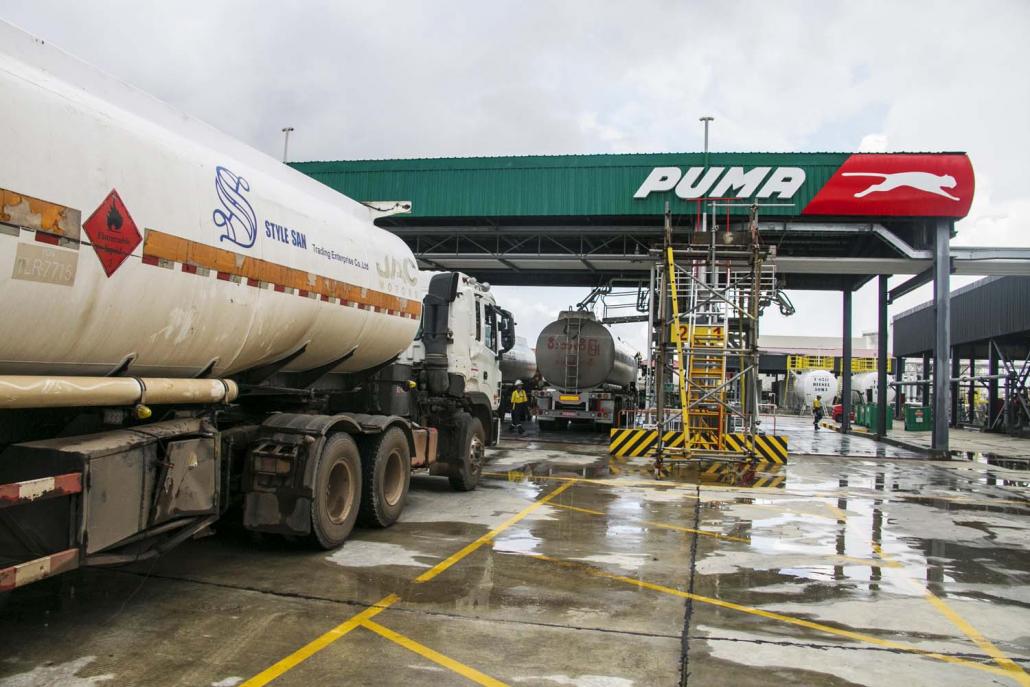
The Pyidaungsu Hluttaw’s Joint Public Accounts Committee says the government should review the contract between Puma Energy and MPPE. (Nyein Su Wai Kyaw Soe | Frontier)
Millions in limbo
The inability to resolve the land lease issue has had one major consequence: the joint venture is yet to distribute any of its profits to either Puma or MPPE.
In an interview last year, Myat Myittar Mon managing director U Win Myint estimated that NEPAS enjoyed a profit margin of between 20 to 25pc. The Auditor General Office’s report said the joint venture had accrued a total profit of $38.278 million by the end of 2017-18, after barely two years of operations. Another two years on, the profits are likely to be well above $50 million, and could conceivably be closer to $100 million.
But with MPPE having failed to uphold its side of the JV agreement, the profits have remained in the bank.
“As the payment for land lease has yet to confirmed, both sides have agreed not to distribute profits,” MPPE director U Aung Maw confirmed to Frontier at his office in Nay Pyi Taw on January 15.
He said NEPAS would hold a board of directors meeting on January 28 “to discuss how to share the profit”.
Frontier was not able to confirm the outcome of the meeting by deadline.
In written responses to Frontier last October, MPPE defended the joint venture and said it had managed to meet international standards within a short period. It claimed the establishment of NEPAS had generated significant savings for the government, including about $60 million on the annual import of jet fuel as well as annual operating costs of over K500 million.
But the Pyidaungsu Hluttaw’s Joint Public Account Committee has taken a different view about the joint venture. Based on the Union Auditor General’s Office report, it has suggested that the Union government reconsider the deal between MPPE and Puma, citing the lack of clarity over MPPE’s in-kind investment, Puma’s delay in investing the $10 million, the lack of profit distribution and complaints from airlines at the high cost of aviation fuel in Myanmar.
“The main reason a joint venture with Puma was permitted was to bring progress and positive change to the industry,” said U Win Htut, the lawmaker. “But the two sides have failed to meet their contractual obligations, and because of that we should worry about the sustainability of NEPAS.
“The cabinet should review the deal and make necessary changes to it to prevent the further losses.”
MPPE insists it wants to resolve the contract issues and continue in partnership with Puma.
But securing new land leases has also become more complicated as a result of a notification from the President’s Office in early 2018 that applies to land lease agreements longer than five years for state-owned land.
Investors now need to reach an agreement with the relevant state or region government before submitting the proposal to the Union government cabinet for approval, according to Notification (3/2018). Some regional governments have refused to lease land to MPPE, the official said.
The MPPE official also told Frontier that the enterprise would face penalties for late payment of stamp duties when it eventually signs the land leases.
“As we will have to backdate the contracts, we will definitely be punished,” the official said.
The Myanmar Stamp Act sets stamp duty on land leases at 2pc of the average annual value, which must be paid before or on the date of execution. In December the Pyidaungsu Hluttaw reportedly reduced the fine for non-compliance from 10 times to three times the payable stamp duty, but it would still leave MPPE facing a hefty bill.
The official said that to minimise the fine, MPPE will likely sign two contracts: one for the years missed, and one for the remainder of the lease term. This would mean NEPAS can only be fined based on the value of the shorter contract, and not the full term of the lease.
“The penalty would be a problematic burden if leases [for the different sites] are all on a single long-term contract,” he said.
Lawmaker U Kyi Moe Naing, who chairs the Pyithu Hluttaw’s Electricity and Energy Development Committee, said MPPE had informed his committee that it would come to parliament and explain the situation, including the issues raised in the Union Auditor General’s Office report.
“This will be in one or two weeks. Then we will have a clear picture,” he told Frontier by phone on January 30. “Let’s wait and see if they can handle the issues well.”


